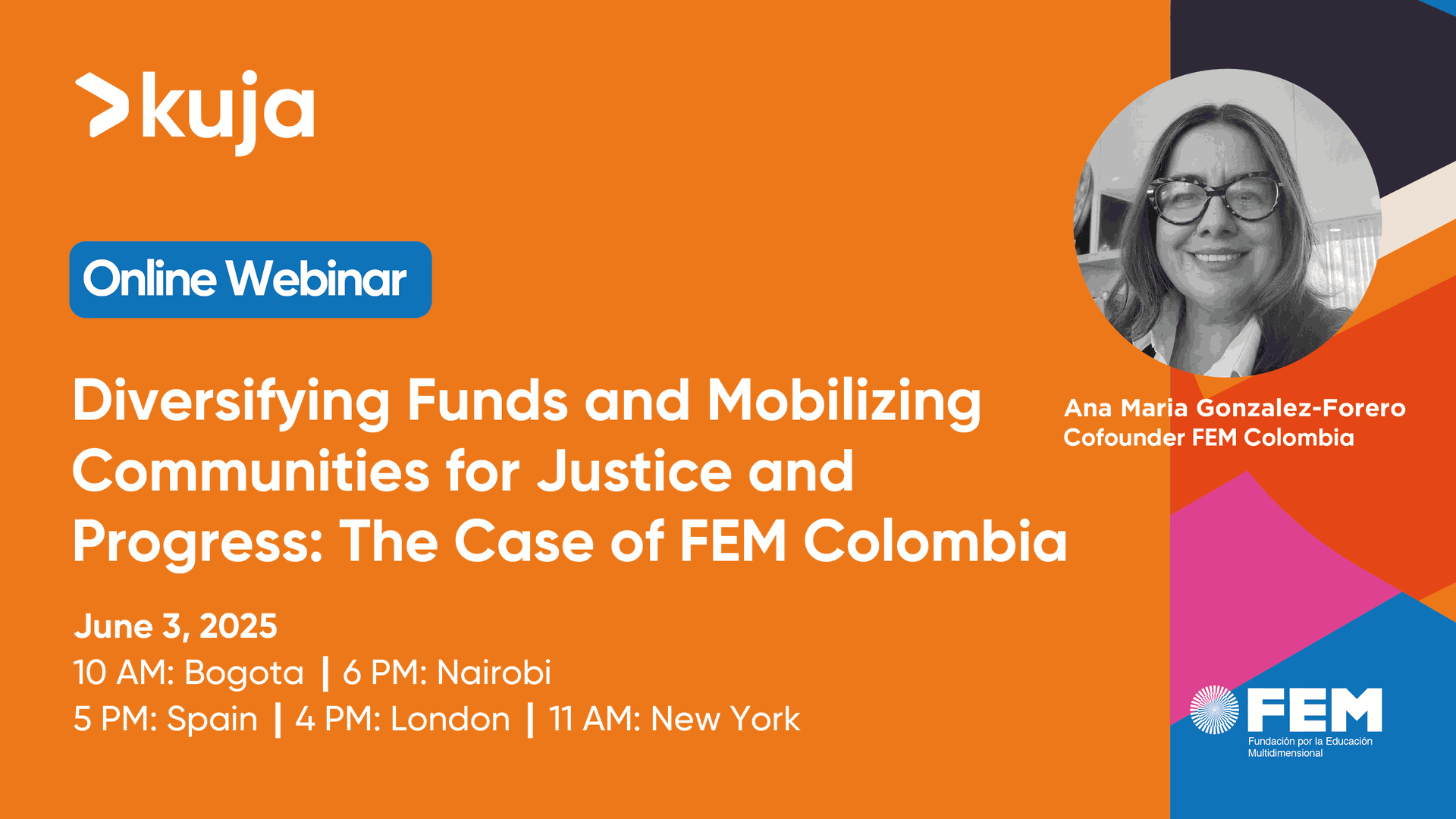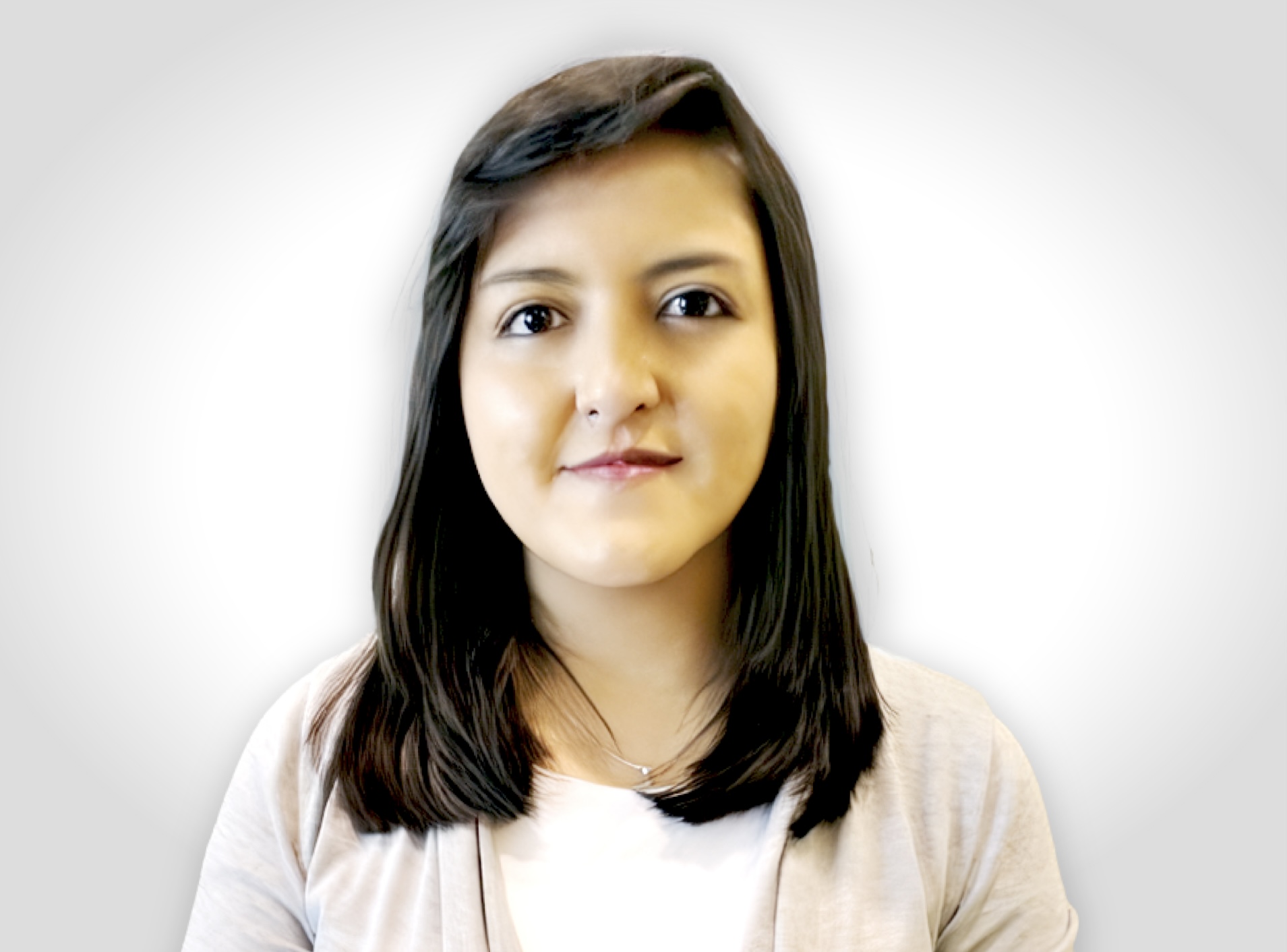Events
The events below are populated from several external sites that publicize grant events relevant to organizations like yours. We also have internal events from Kuja. Use the filters to explore the events that are interesting to you and apply to those that you want to attend!
- Adult Welfare
- Adult Welfare
- Animal Welfare
- Animal Cruelty
- Animal Experimentation
- Animal Rights
- Animal Welfare
- Arts & Culture
- Art
- Art Conservation
- Arts & Culture
- Culture
- Curating
- Documentary Making
- Film
- Galleries
- Games
- History
- Humanities
- Libraries
- Literature
- Museum
- Music
- Performing arts
- Podcasting
- Poetry
- Public arts
- Storytelling
- Visual arts
- Children & Youth
- Child Abuse
- Child Development
- Child Neglect
- Child Nutrition
- Child Participation
- Child Protection
- Child Rights
- Child Soldiers
- Child Survival
- Children & Youth
- Children with Disabilities
- Children’s Education
- Children’s Health
- Early Childhood Development and Education
- Early Marriages
- Orphans & Vulnerable Children
- Research
- School Health
- Sexual and Gender-Based Violence
- Youth
- Youth Economic Empowerment
- Youth Empowerment
- Youth Engagement
- Youth Leadership
- Youth Participation
- Youth Policies
- Youth Representation
- Youth and Climate Change
- Climate Change
- Agroforestry
- Biodiversity
- Biodiversity and Ecosystems
- Carbon Credits
- Chemical Risks
- Climate Adaptation
- Climate Change
- Climate Financing
- Climate Mitigation
- Climate Policy
- Climate Research
- Climate Resilience
- Conservation
- Decarbonization
- Desertification
- Droughts
- Early Warning Systems
- Eco-Friendly Production
- Eco-tourism
- Emerging Technologies
- Emission Reduction
- Environment
- Environmental Justice
- Environmental, Social and Governance
- Forest Management/ Conservation
- Fossil Fuel Management
- Grassroots Climate Response
- Habitat Restoration
- Hazardous Waste
- Invasive Species Control
- Just Energy Transition
- Land Degradation
- Land Restoration
- Marine conservation
- Mountain Ecosystems
- Mountains
- Natural Resource Management
- Ocean Conservation
- Rangelands
- Recycling
- Reforestation
- Renewable Energy
- Sea Conservation
- Sewage Management
- Solid Waste Management
- Sustainable Fashion
- Sustainable Tourism
- Sustainable Use
- Tree Planting
- Urban Green Infrastructure
- Urban Sustainability
- Waste Collection
- Waste Management
- Water Management
- Water Pollution
- Wildlife Conservation
- Communications and Advocacy
- Advocacy
- Communications
- Communications and Advocacy
- Media
- Storytelling
- Community Development
- Community Development
- Education
- Adult Literacy
- Alternative Education
- Digital Literacy
- Early Childhood Development and Education
- Education
- Education Policy
- Education Research
- Education Technologies
- Education Workforce
- Education in Emergencies
- Foundational Learning
- General Education
- Girls’ Education
- Higher Education
- Inclusive Education
- Information and Communication Technology
- Language Education
- Natural Sciences
- Post-Secondary Education
- Primary Education
- School Supplies
- Science, Technology, Engineering, and Mathematics
- Secondary Education
- Skills Development
- Social and Emotional Learning
- Social and Human Sciences
- Technical / Vocational Training
- Elderly
- Age Discrimination
- Elderly
- Elderly People
- Healthy Ageing
- Older People Rights
- Food and Agriculture
- Agricultural Machinery
- Agricultural Research
- Agriculture
- Agro Ecology
- Agroecology
- Farmer’s Rights
- Fishing
- Food Aid
- Food Feminism
- Food Policies
- Food Security
- Food Sovereignty
- Food Systems
- Food Systems Research
- Food Value Chains
- Food and Agriculture
- Genetically Modified Crops
- Irrigation Systems
- Markets and Trade
- Organic Farming
- School Feeding
- Seed Systems
- Soil Health Improvement
- Sustainable Agriculture
- Sustainable Farming
- Gender Equality
- Discriminatory Policies
- Domestic Workers
- Early Marriages
- Early Pregnancy
- Feminism
- Gender
- Gender Equality
- LGBTQIA+ Equality
- Leadership at Work
- Legal Protection
- Maternal and Child Healthcare
- Research
- Sex Work
- Sexual and Gender-Based Violence
- Sexual and Reproductive Health Rights
- Women & Girls
- Women and Girls in STEM
- Women with Disabilities
- Women’s Decision Making
- Women’s Empowerment
- Women’s Health
- Women’s Leadership
- Women’s Livelihoods
- Women’s Public Participation
- Women’s Representation
- Women’s Rights
- Governance
- Activism
- Democracy
- Diplomacy
- Elections
- Foreign Policy
- Governance
- National Security
- Political Movement
- Public Policy
- Healthcare
- Autoimmune Diseases
- Basic Care
- Chronic Illnesses
- Communicable Diseases
- Community Health
- Critical Illnesses
- Disability Healthcare
- Disease Surveillance
- Environmental Health
- Epidemiology
- Family Planning
- Food Safety
- HIV/AIDS
- Health Financing
- Health Promotion
- Healthcare
- Healthcare Technologies
- Hunger Alleviation
- Immunization
- Infectious Diseases
- Malaria
- Maternal Health
- Maternal and Child Health Care
- Maternal and Infant Health Care
- Menstruation
- Mental Health
- Neglected Tropical and Vector-Borne Diseases
- Newborn Health
- Non-Infectious Diseases
- Noncommunicable Diseases
- Nutrition
- Obesity
- Oral Health
- Pandemic
- Physical Health
- Primary Health
- Public Health
- Reproductive Health
- Research
- Road Safety
- Sexual Health
- Sexual and Reproductive Health and Rights
- Sexually Transmitted Infections (STIs)
- Sickle Cell Disease
- Soil-Transmitted Helminth Infections
- Substance Abuse
- Traditional Medicine
- Tuberculosis
- Vaccines
- Water, Sanitation and Hygiene
- Human Rights and Social Justice
- Child Protection and Welfare
- Civic Engagement
- Civil Society
- Disability Rights
- Disadvantaged Communities
- Diversity, Equity and Inclusion
- Economic Justice
- Ending Abuse
- Female Activists
- Gender-based Violence
- Human Rights
- Human Rights and Protection
- Human Rights and Social Justice
- Human Trafficking
- Indigenous Rights
- LGBTQ+ Rights
- Racial Justice
- Refugee Rights
- Research
- Sexual Exploitation and Abuse
- Social Action
- Social Justice
- Youth Rights
- Humanitarian Aid
- Asylum Seekers
- Camp Management
- Cash-Based Transfers
- Climate-Smart Disaster Risk Reduction
- Conflict Areas
- Detainees
- Disaster Management
- Disaster Relief
- Disaster Risk Preparedness and Response
- Disaster Risk Reduction and Recovery
- Displacement
- Early recovery
- Economic Recovery
- Emergency Response
- Essential Services
- Forced Displacement
- Healthcare in Emergencies
- Humanitarian Aid
- IDP Settlements
- International Humanitarian Law
- Medical Commodities
- Migration
- Natural Disasters Response
- Prisoners of War
- Protection
- Reconnecting Families
- Refugee Registration
- Relief Assistance
- Research
- Resettlement
- Resilience Building
- Rights of People in Conflict
- Shelter
- Torture Survivors
- Urban Refugees
- Water, Sanitation and Hygiene
- survivor-led community-based response (sclr)
- Leadership
- Leadership
- Leadership Building
- Leadership Mentorship
- Leadership Training
- Localization and Decolonizing Aid
- Decolonizing Aid
- Decolonizing Bilaterals
- Decolonizing INGOs
- Decolonizing Multilaterals
- Decolonizing Philanthropy
- Localization
- Localization and Decolonizing Aid
- Locally-Led Development
- Shifting Power
- Other
- Other
- Peace
- Community Security
- Conflict and Gender Sensitivity
- Inclusive Governance
- Peace
- Peace and Reconciliation
- Peacebuilding
- Peacekeeping
- Security
- Philanthropy , Giving and Development Aid
- Bilateral Aid
- Charity
- Community Philanthropy
- Development Aid
- Giving
- Individual Donations
- Multilateral Aid
- Philanthropy
- Philanthropy , Giving and Development Aid
- Religious Giving
- Social Entrepreneurship
- Social Impact
- Social Impact Investment
- Volunteering
- Poverty, Livelihoods & Economic Development
- Agribusiness
- Business Growth Programs
- Cash Programming
- Economic Development
- Economic Growth
- Economic and Social Development
- Economic and Social Inequalities
- Enterprise Development
- Entrepreneurship
- Extreme Poverty
- Financial Inclusion
- Income Generation Activities
- Income Security
- Inequity
- Informal Settlements
- Job Creation
- Job Skills Training
- Livelihood Development
- Livelihoods
- Loans
- Microfinance
- Poverty
- Poverty Alleviation
- Poverty, Livelihoods & Economic Development
- Private Sector Engagement
- Research
- Rural Development
- Safe Housing
- Savings
- Social Care
- Social and Economic Advancement
- Trade and Investment
- Underprivileged Communities
- Vulnerable People
- Women’s Entrepreneurship
- Workforce Development
- Public Safety
- Community Resilience
- Conflict Resolution
- Crime Prevention
- Homelessness
- Housing
- Infrastructure Development
- Legal Services
- Public Safety
- Religious Activity
- Church
- Church Outreach
- Church-Based
- Faith-Based Service Delivery
- Interfaith Cooperation
- Interfaith Dialogue
- Religious Activity
- Seva
- Waqf
- Zakat
- Renewable Energy
- Clean Cooking
- Clean Energy
- Electricity
- Emissions Reduction
- Energy Financing
- Energy Transition
- Geothermal Energy
- Green Energy
- Industry Decabornization
- Off-Grid Renewable Energy
- Public Financing
- Research
- Solar Energy
- Wind Energy
- Science, Information and Communication Technology
- Artificial Intelligence
- Biology
- Blockchain
- Digital Products
- Earth Sciences
- Engineering
- Free Internet
- Health Sciences
- Internet Access
- Internet Connectivity
- Internet of Things
- Safe Internet
- Science, Information and Communication Technology
- Science, Technology, Engineering, and Mathematics
- Sciences
- Software and IT
- Telecommunications
- Website Development
- Sports and Recreation
- Equal Play
- Sports and Recreation
- Sports for Development
- Sustainable Development
- Sustainability
- Sustainable Development
- Sustainable Improvements
- Water, Sanitation and Hygiene
- Adequate Sanitation
- Clean Water
- Development Water, Sanitation and Hygiene
- Emergency Water, Sanitation and Hygiene
- Proper Hygiene Practices
- Public Health Water, Sanitation and Hygiene
- Safe Drinking Water
- Safe Water
- Urban Water, Sanitation and Hygiene
- Water Access
- Water Management
- Water Resilience
- Water, Sanitation and Hygiene
This webinar will explore debt justice and reparations as solidarity-based alternatives to traditional forms of development “aid,” especially in light of the current crises of the "aid" system.
Three experts, bringing diverse regional perspectives from Africa and Latin America as well as global insights, will examine the current state of the debt crisis in their regions and globally. They will share common advocacy goals, ongoing reform efforts, and concrete recommendations for achieving development without reliance on external debt or the traditional “aid” paradigm.
We will discuss:
Reparations and reparative justice from a pan–African perspective;
Responsible lending and borrowing, and cancellation of illegitimate debt;
Africa- and Latin America-led proposals for structural reform of the global financial architecture to address systemic inequalities rooted in colonialism, the transatlantic slave trade, and neocolonialism;
Advocacy strategies ahead of the 4th International Conference on Financing for Development (FfD4), and in support of the establishment of a UN Framework Convention on Sovereign Debt.
This session is open to a broad, non–specialist international cooperation audience—including professionals, graduate students, and staff from small and large organizations—regardless of prior familiarity with the international neoliberal financial system, debt, or reparations. Participants are encouraged to submit questions for the speakers in advance (in English, Spanish, or French) to mara.luna@kuja.org.
Speakers
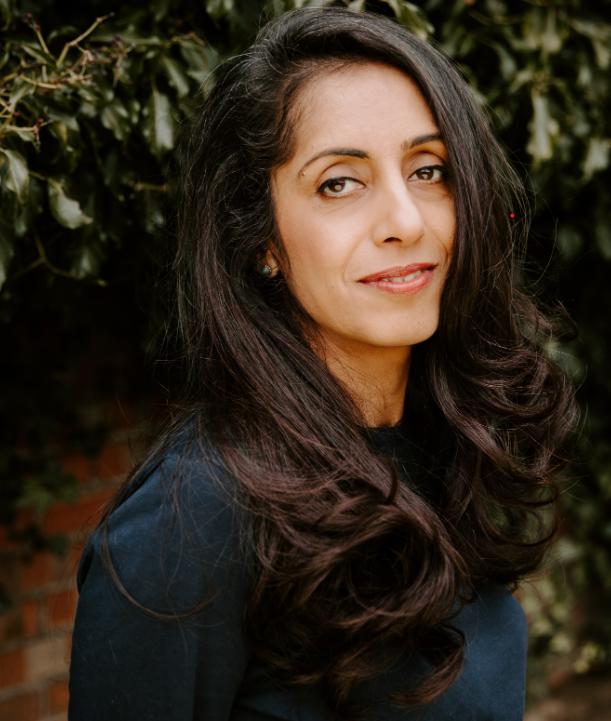
Priya Lukka is an economist in international development working globally to understand alternative realities and perspectives to neoliberalism through raising awareness of communities working for repair and reparations, which is also the focus of her PhD enquiry. Priya has most recently worked as Macroeconomist, covering the region of Asia, at the Office of the High Commissioner for Human Rights at the United Nations, and as Chief Development Economist for Christian Aid.
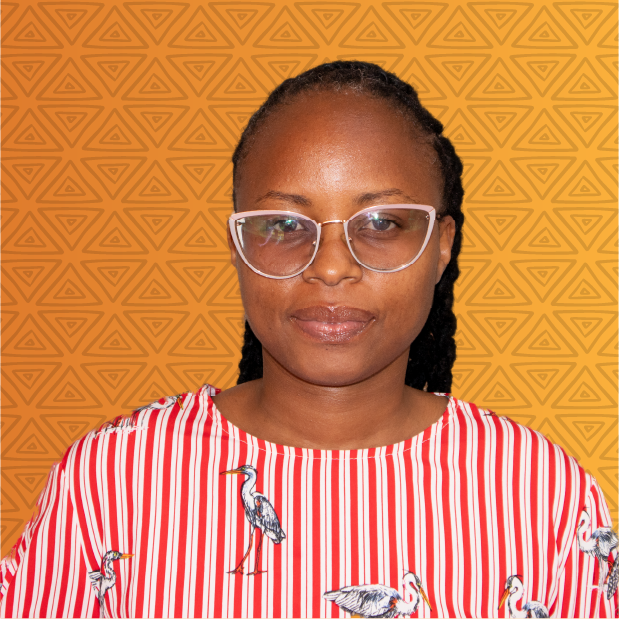
Catherine Mithia is the Policy Research & Advocacy Officer for Sovereign Debt Management at the African Forum and Network on Debt and Development – AFRODAD. As a published author, she has contributed insightful work on governance, the impact of illicit financial flows, and the role of credit rating agencies, offering a nuanced African perspective. Her work focuses on delivering research–backed policy alternatives that promote innovative and sustainable solutions to development challenges across Africa.
Daniela Berdeja Ruiz is the Sovereign Debt Analyst and Coordinator of the LAC Vulnerability Atlas at the Latin American Network for Economic, Social and Climate Justice (LATINDADD). In this role, she leads regional coordination efforts to map and systematize key economic, financial, social, and climate indicators across Latin America. Daniela is a Bolivian economist and engineer with expertise in quantitative methods for economic analysis, sustainable and economic development research, and policy work related to financing and sovereign debt. Her work also explores the intersections between gender and austerity policies.
Mara Tissera Luna (moderator), KujaLearn Content Advisor.
Date and time: June 5, 2025
- PST, USA – 09:00
- Mexico City, Mexico – 10:00
- EST, USA – 12:00
- Buenos Aires, Rio de Janeiro – 13:00
- London, UK – 16:00
- Geneva, Madrid – 17:00
- Cape Town, South Africa – 18:00
- Nairobi, Kenya – 19:00
- Delhi, India – 22:00
Duration: 1.15 hour – Language: English with live interpretation into Spanish and French.
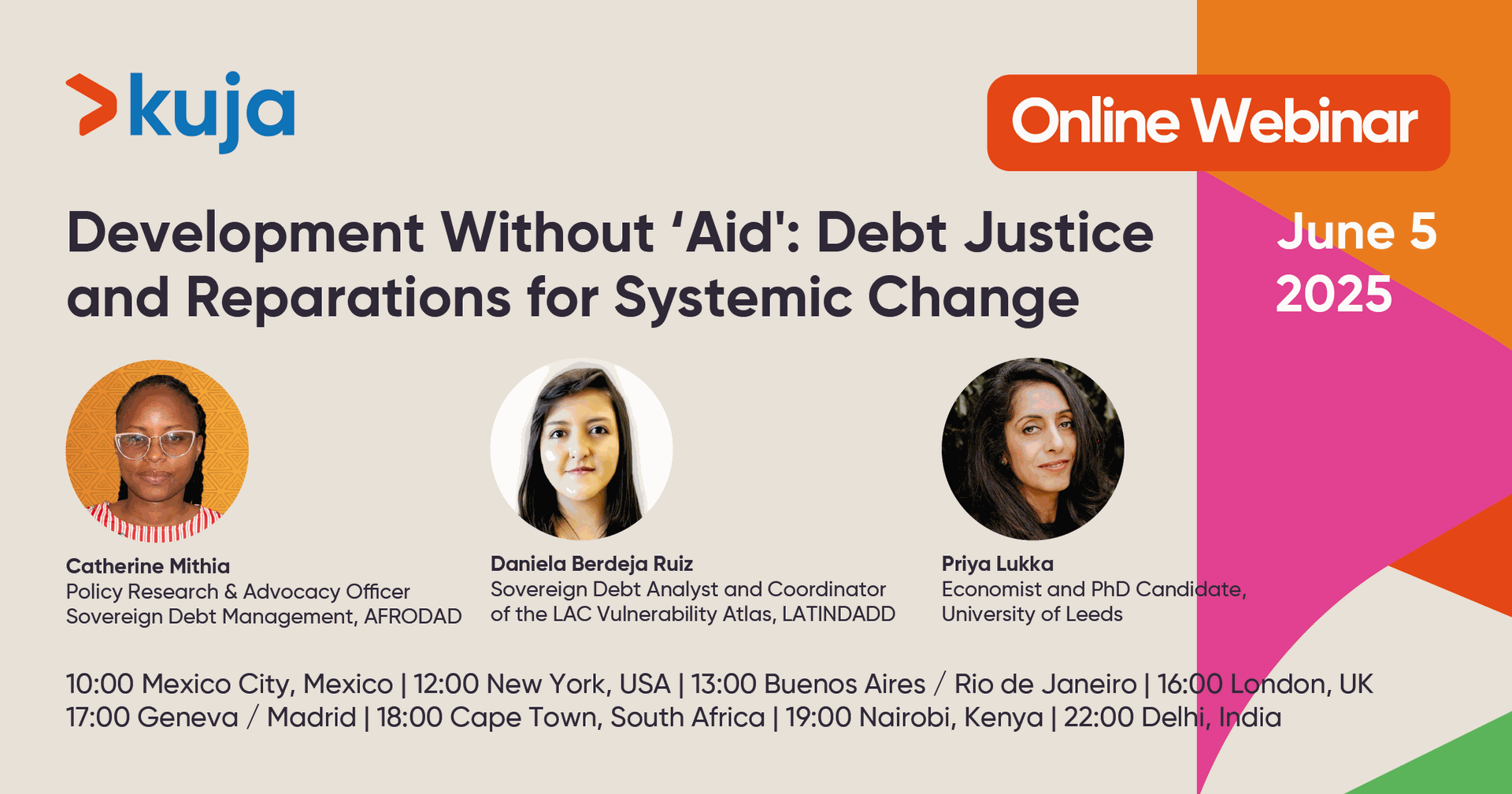
As International Funders and Donor Countries, including the U.S. are stepping away from global cooperation, dynamic community-led Global South organizations are showing us the way to inclusive and effective community development and resource mobilization. FEM in Colombia has been working with Afro-Colombian and Indigenous communities for over a decade to reclaim their lands, pursue their dreams and build their communities. Join us to learn more about this model community-driven organization and its successful funding diversification model. This is an in-depth conversation with Ana Maria Gonzalez, FEM's Co-Founder. Translation in Spanish and French will be available.
Speaker
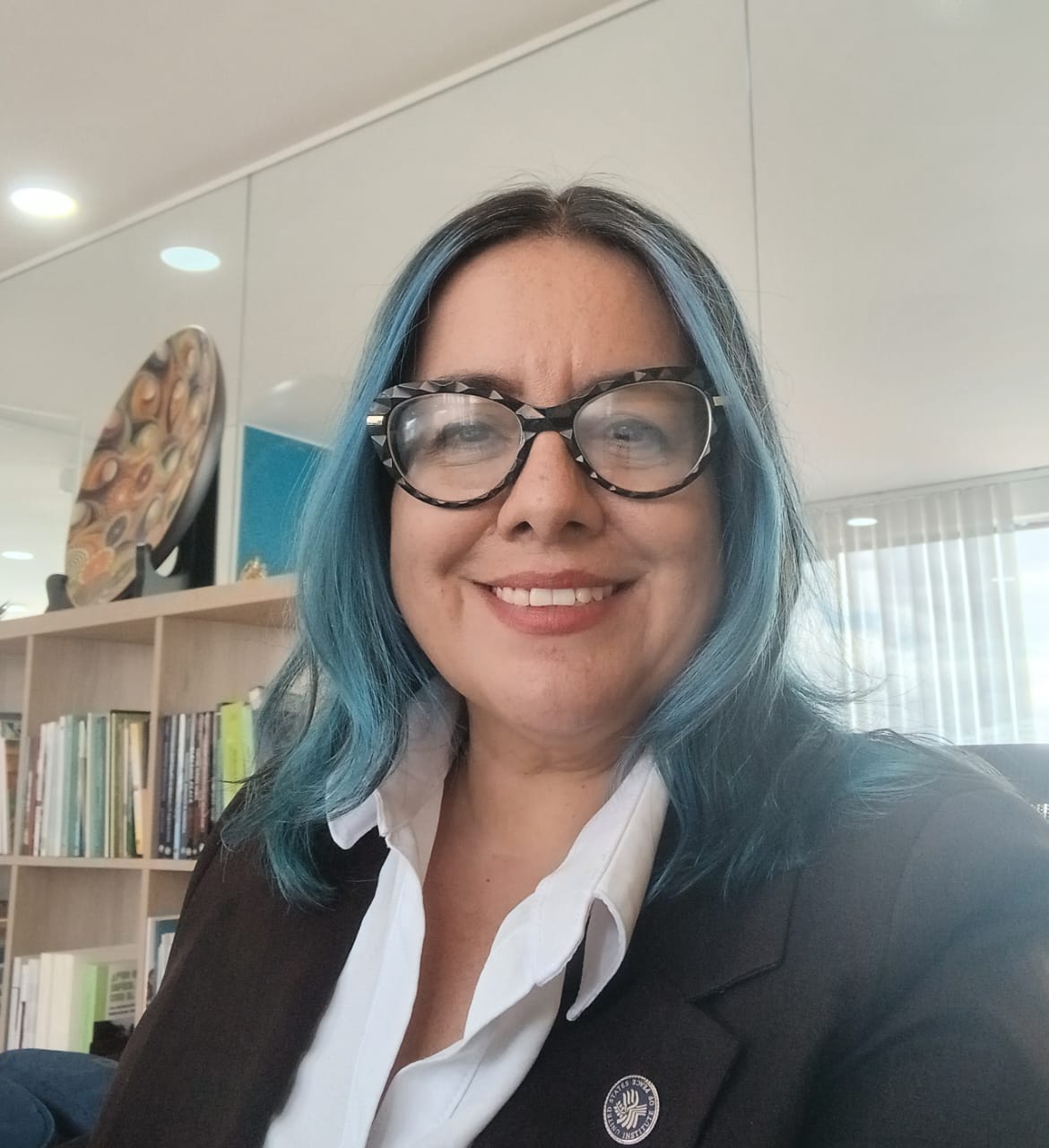
Ana Maria Gonzalez-Forero
Cofounder - FEM Colombia
Ana Maria is Colombian political scientist & mother of 2. Co-founded FEM (2007), securing land rights for 20,000 Afro-Colombians in 17 years via participatory models & social enterprises. Obama Scholar '18. Served Cartagena Gov't, tackling displacement & exploitation. Now with Voces Nuevas, advocating for Global South inclusion & a new world order.
